Vocabulary development Phonics Worksheets for 4-Year-Olds
13 filtered results
-
From - To
Enhance your 4-year-old's vocabulary with our engaging Phonics Worksheets! Designed to promote language skills, these worksheets introduce children to essential phonetic concepts while making learning fun. Each activity focuses on building vocabulary through interactive exercises, including tracing, matching, and identifying sounds associated with letters and words. Our colorful and age-appropriate materials capture young learners' attention, fostering confidence in their reading skills. Parents and educators will appreciate how these resources align with early childhood development standards, ensuring a solid foundation for future learning. Download our printable worksheets today and support your child's linguistic growth one phoneme at a time!
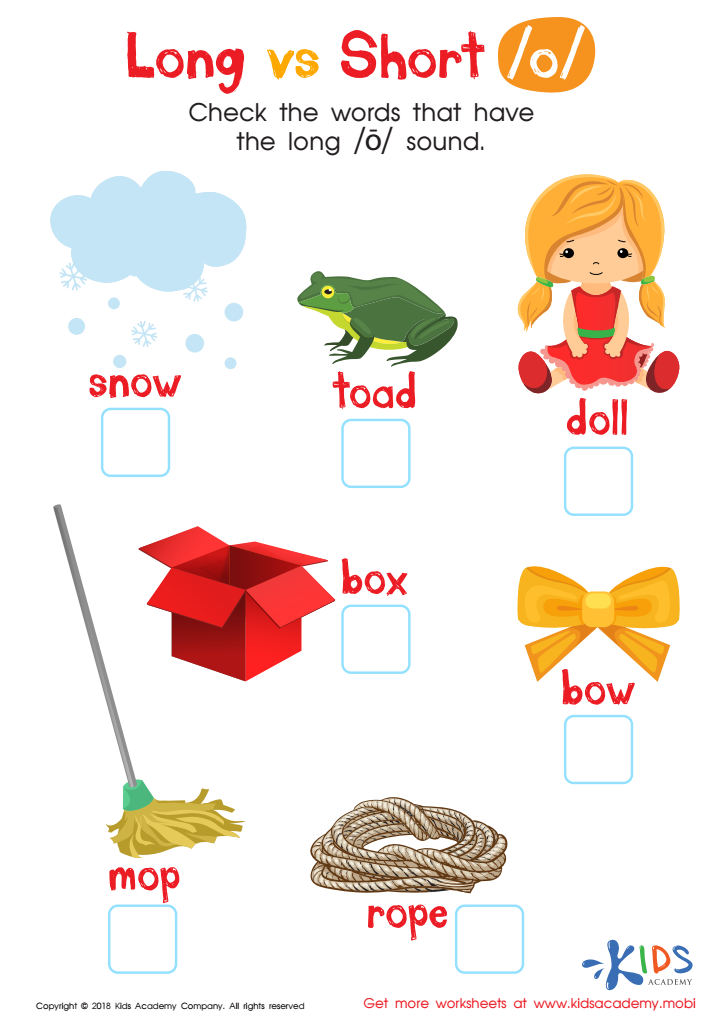

Long vs Short O Reading Worksheet
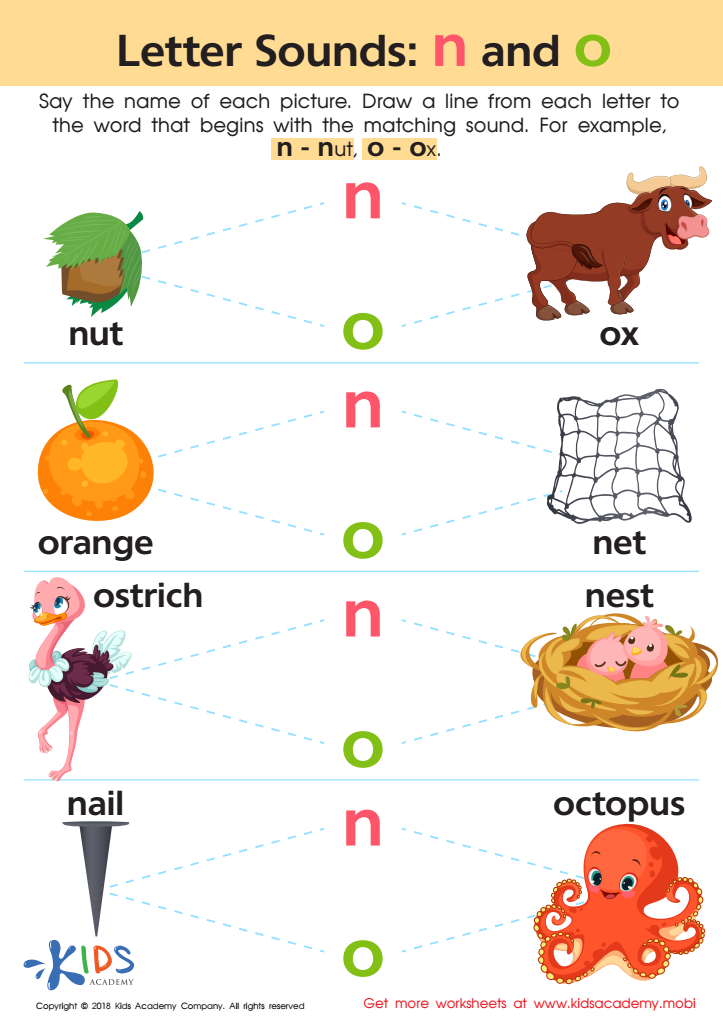

Letter N and O Sounds Worksheet


Vowel and Consonant Sounds: Assessment Worksheet
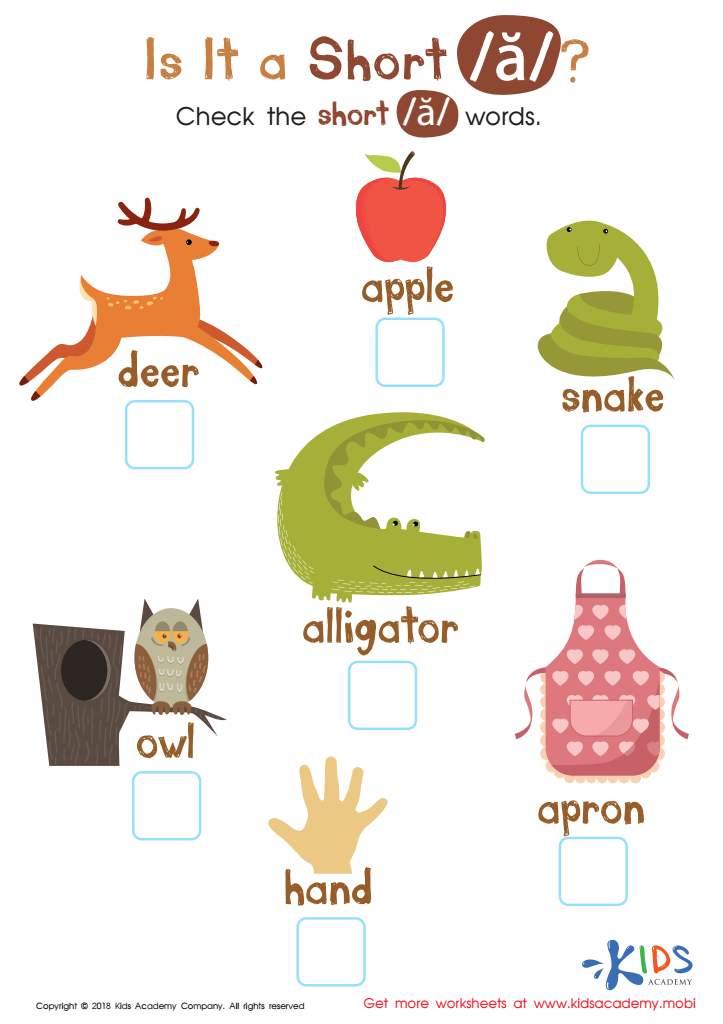

Is It Short A? Reading Worksheet
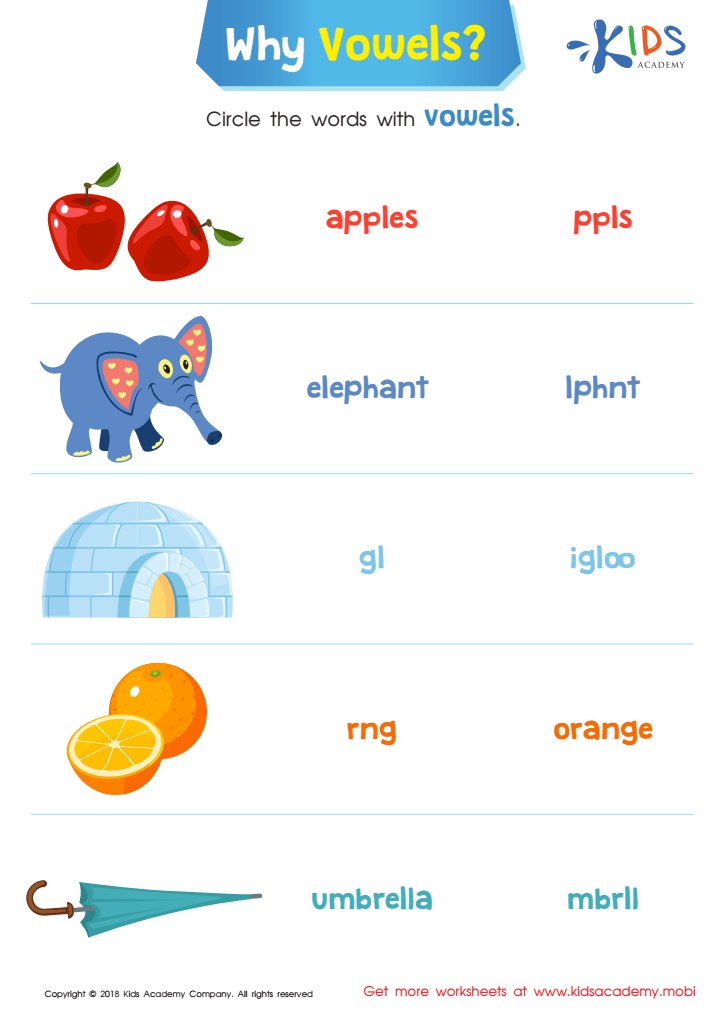

Why Vowels? Reading Worksheet
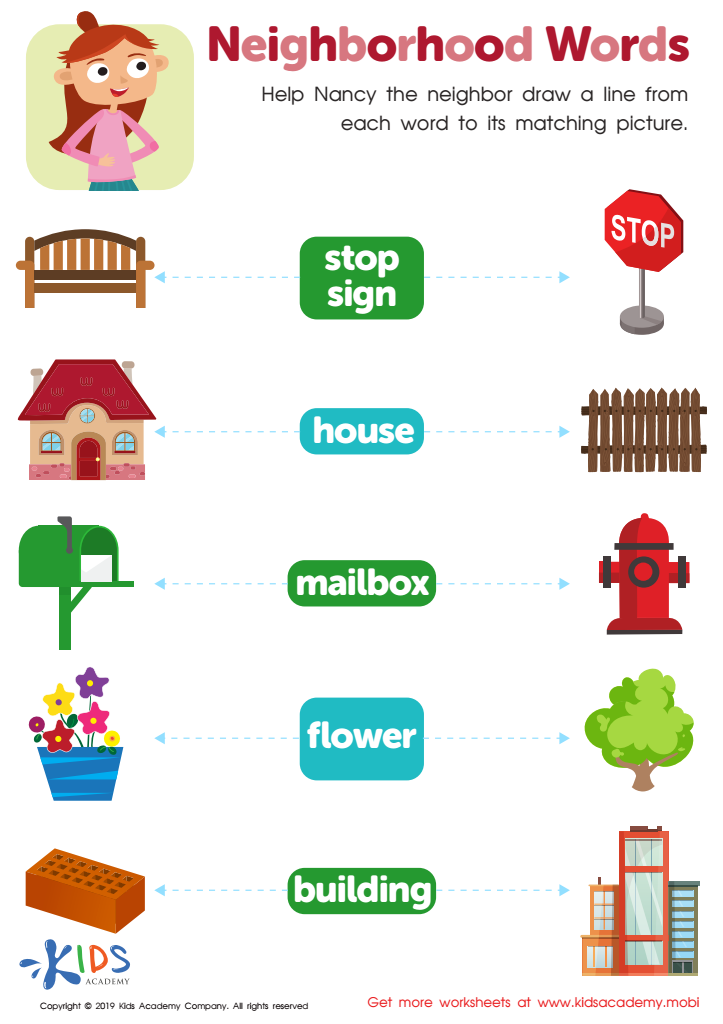

Neighborhood Words Worksheet
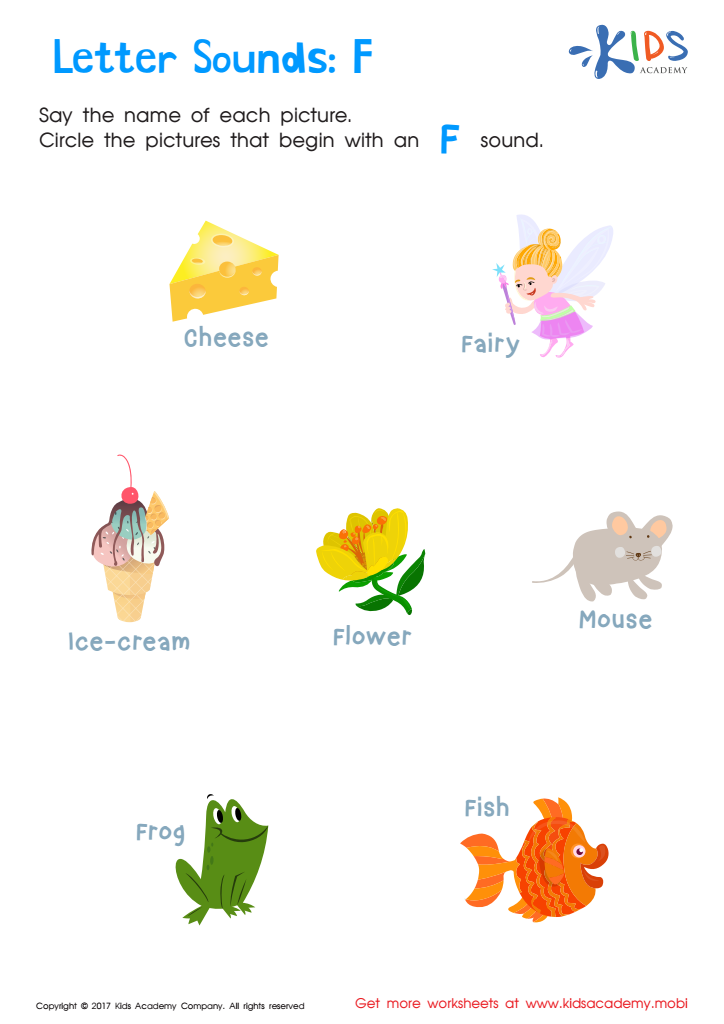

Letter F Sounds Worksheet
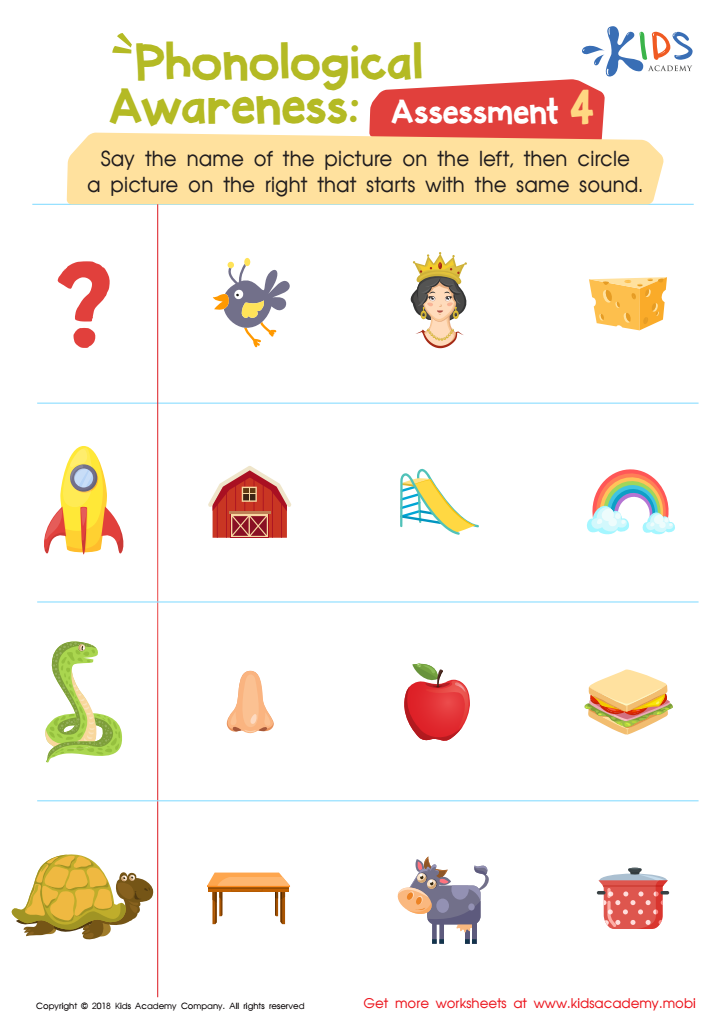

Phonological Awareness: Assessment 4 Worksheet
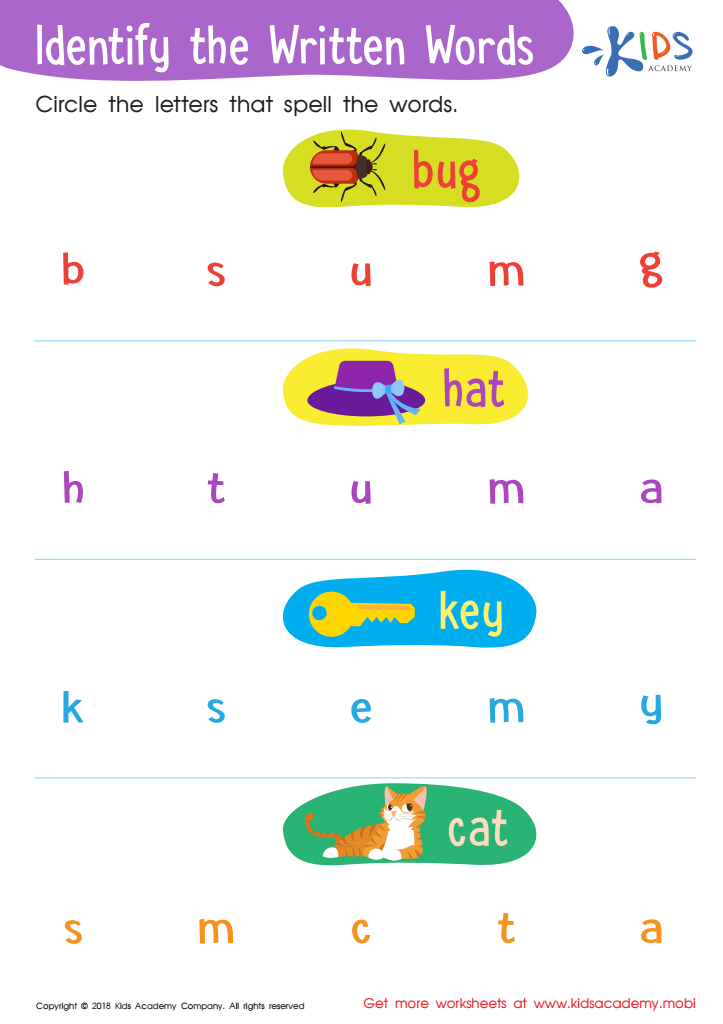

Identify the Written Words Worksheet
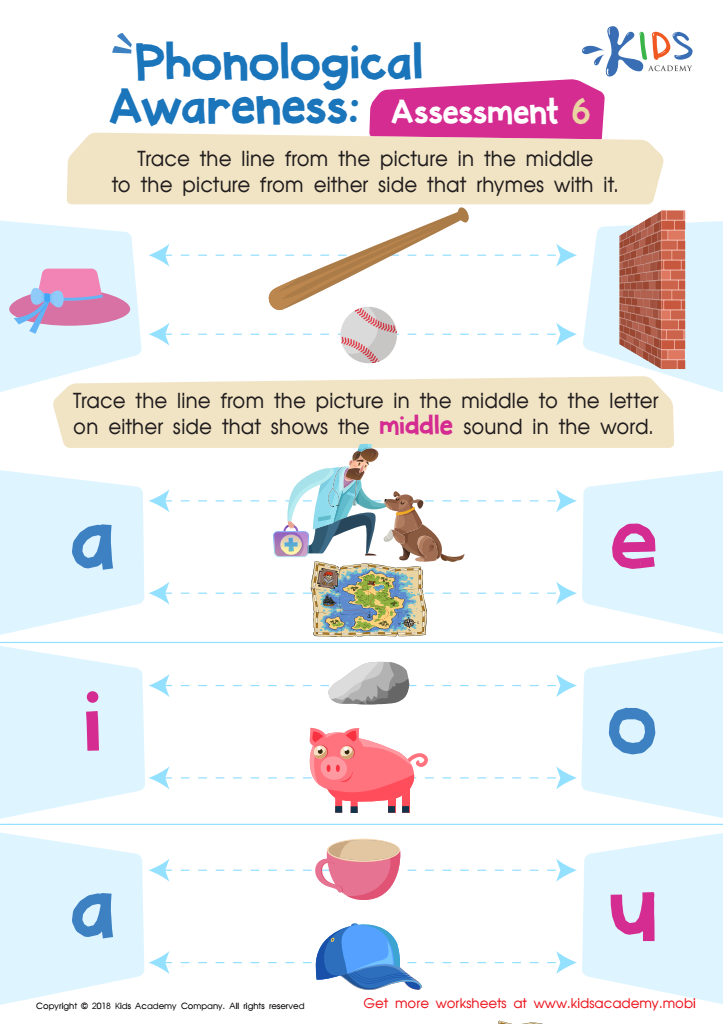

Phonological Awareness: Assessment 6 Worksheet
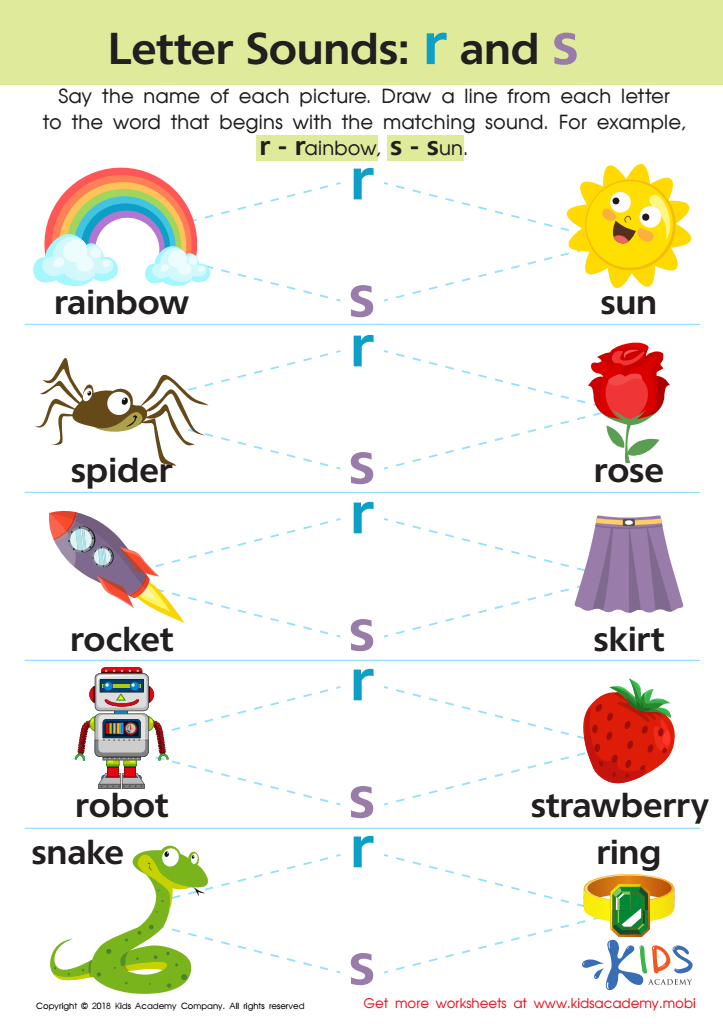

Letter R and S Sounds Worksheet


Phonological Awareness: Assessment 1 Worksheet
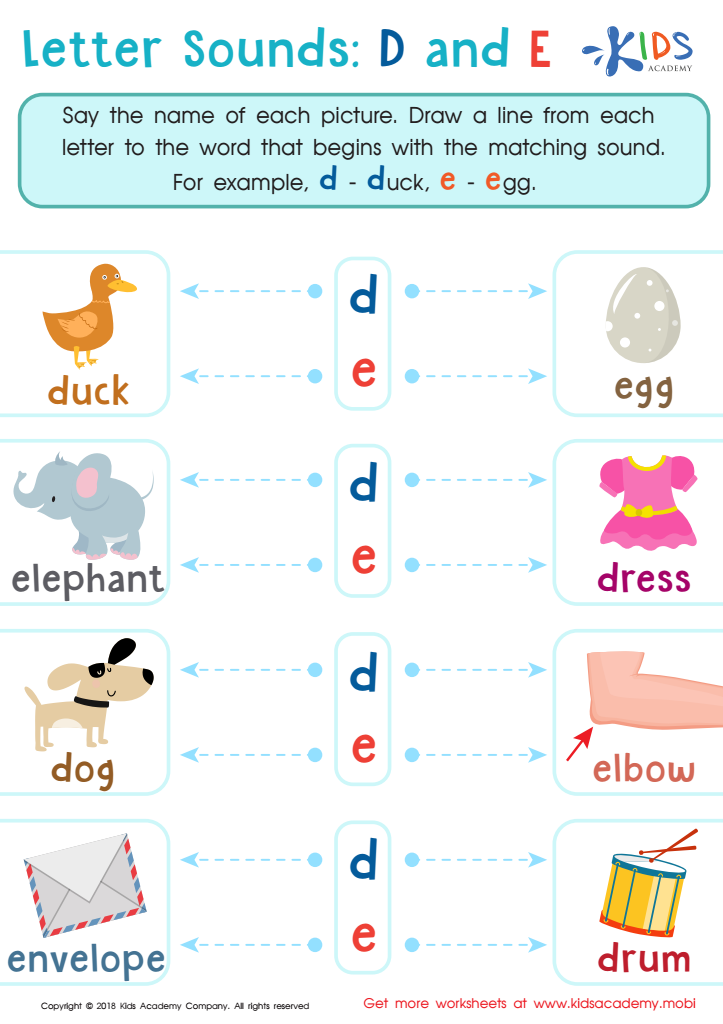

Letter D and E Sounds Worksheet
Vocabulary development and phonics are critical components of early literacy for 4-year-olds, laying the foundation for future reading and writing skills. Parents and teachers should care about these developmental areas because research shows that a robust vocabulary is strongly linked to a child's ability to comprehend and communicate effectively throughout their lives. At this stage, children are like sponges, eagerly absorbing new words and sounds. Introducing phonics helps them understand the relationship between letters and their associated sounds, essential for decoding words.
Engaging children in vocabulary-rich experiences, such as reading aloud, storytelling, and playful conversations, enhances their language skills and encourages curiosity about words. Phonics instruction aids in the development of linguistic awareness, allowing children to begin reading simple texts independently, increasing their confidence and motivation to learn.
Moreover, strong vocabulary and phonics skills act as critical predictors of later academic success. They equip children with the tools to tackle more complex language tasks as they progress in school. Inviting parents to be active participants in this developmental process fosters a supportive home environment and creates a united approach to improving literacy in young learners. Ultimately, prioritizing vocabulary and phonics ensures children are well-prepared for their educational journey.
 Assign to My Students
Assign to My Students





















